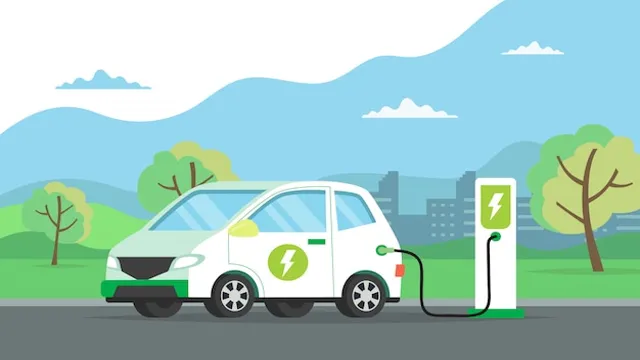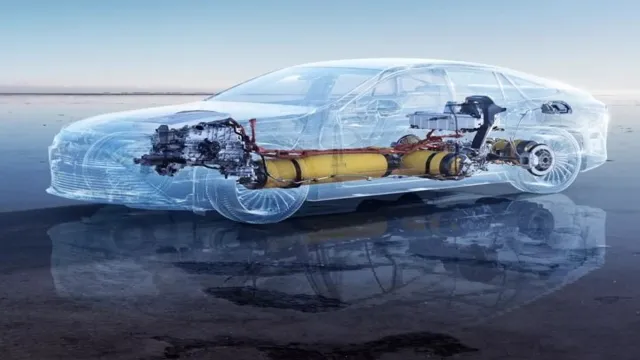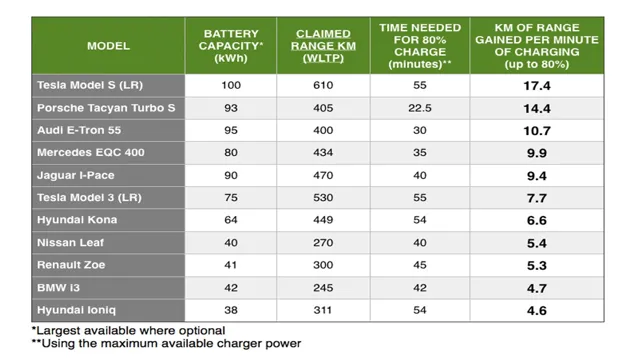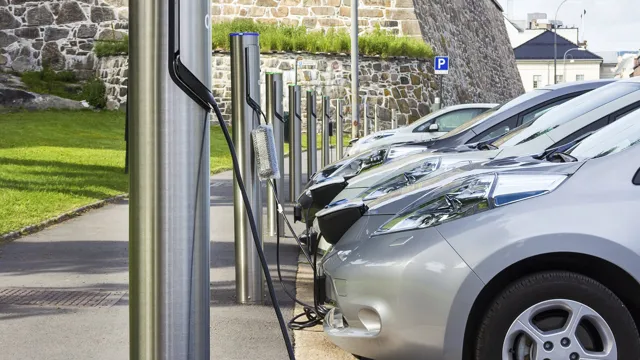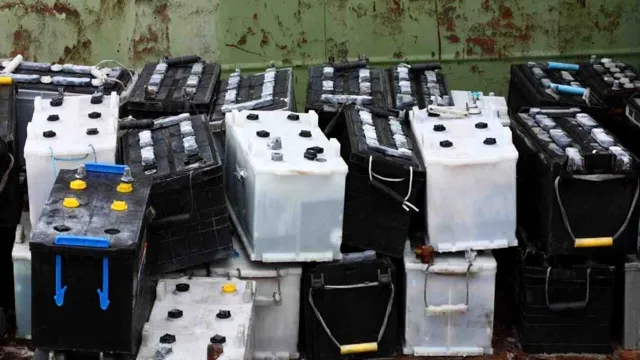Powering the Future: How Electric Car Batteries Are Revolutionizing the Environment
Electric car batteries are a hot topic in discussions surrounding sustainability and the environment. With a growing public concern about climate change, electric cars have been pushed to the forefront as a promising green alternative to the traditional gasoline-powered car. But have you ever wondered about the impact of electric car batteries on the environment? As it turns out, these batteries are not without their own ecological drawbacks, and understanding their environmental impact is crucial to truly evaluate their overall sustainability.
In this blog post, we will take a deep dive into the impact of electric car batteries on the environment, exploring the pros and cons of electric car batteries from an environmental standpoint.
Benefits of Electric Cars
The rise of electric cars has brought about numerous benefits to the environment, thanks to their battery-powered technology. Unlike gas-powered cars, electric cars do not emit harmful pollutants into the air, contributing to cleaner air and reduced carbon dioxide emissions. Additionally, the production and disposal of their batteries are far less harmful to the environment than traditional cars’ engines.
The batteries can be recycled, and the materials used in their production are sourced sustainably, meaning fewer natural resources are depleted. While electric cars are still not perfect, their benefits to the environment cannot be ignored. As technology continues to improve, it’s exciting to think of the future possibilities for electric cars and their positive impact on the environment.
Reducing Carbon Emissions
Electric cars have become increasingly popular in recent years, and for good reason. Not only are they better for the environment, but there are also many benefits to owning an electric car. One major benefit is that they drastically reduce carbon emissions.
Compared to traditional gasoline-powered cars, electric cars emit significantly less CO2 and other pollutants that contribute to climate change. By driving an electric car, you’re doing your part to help protect the planet for future generations. But the benefits of electric cars don’t stop there.
They’re also more cost-efficient in the long run. While the initial cost of an electric car is generally higher than a traditional car, you’ll save money over time on fuel and maintenance costs. Electric cars require less maintenance than gasoline cars since they have fewer moving parts, and electricity is generally cheaper than gasoline.
And as more and more people switch to electric cars, the cost of electric cars is likely to go down. Electric cars are also incredibly quiet and smooth to drive, providing a comfortable and peaceful ride. They also offer instant torque, meaning they accelerate quickly and smoothly, which can be a lot of fun for drivers who enjoy a bit of speed.
And with charging stations popping up all over the country, there’s never been a better time to make the switch to an electric car. In summary, electric cars offer a variety of benefits, including reducing carbon emissions, saving money over time, and providing a comfortable and enjoyable ride. By making the switch to an electric car, you’ll not only be doing your part for the environment but also reaping the benefits that electric cars have to offer.
So why not make the switch today and join the growing movement towards a more sustainable future?
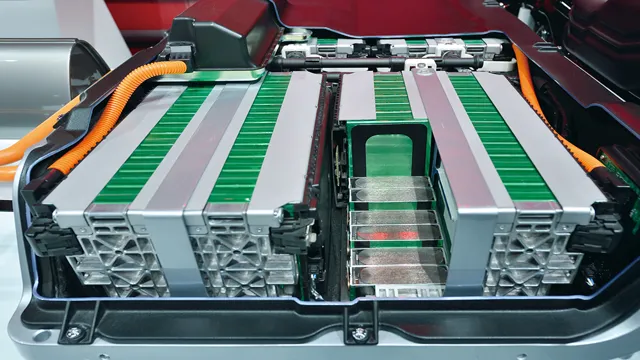
Lowering Air Pollution
“electric cars” Electric cars have become increasingly popular over the years due to their ability to reduce air pollution. Traditional gasoline-powered cars release harmful pollutants into the air, contributing to poor air quality and various health problems. Electric cars, on the other hand, operate on clean energy, emitting no pollutants and reducing the amount of harmful gases that enter the atmosphere.
By switching to electric cars, we can reduce our carbon footprint and improve air quality, promoting a healthier and more sustainable environment for all. In addition to environmental benefits, electric cars also offer economic benefits such as lower fuel and maintenance costs in the long run. As more people switch to electric cars, the demand for charging stations and infrastructure will increase, further promoting clean energy and sustainable transportation.
Overall, investing in electric cars not only benefits individuals but also contributes to a cleaner and healthier planet.
Environmental Impact of Battery Production
When it comes to the production of electric car batteries, there is no question that certain environmental impacts must be considered. While electric cars themselves emit far less pollution than their gas-guzzling counterparts, the mining and processing of the materials needed to create the batteries can take a toll on the environment. For instance, the production of lithium-ion batteries requires large amounts of water and energy, which can put a strain on local resources and result in higher levels of carbon emissions.
Additionally, the process of extracting the raw materials for battery production can lead to deforestation, pollution of water sources, and other negative impacts on local ecosystems. However, it is worth noting that efforts are being made to reduce the impact of battery production on the environment. From investing in renewable energy sources to using more sustainable manufacturing practices, companies are working to minimize their ecological footprint while still meeting the growing demand for electric vehicles.
Overall, while it is important to be mindful of the environmental consequences of electric car battery production, it is also important to keep in mind the long-term benefits of transitioning away from fossil fuels and towards cleaner transportation options.
Extracting Materials for Batteries
As the demand for batteries continues to rise, so does the need for the extraction of the materials that make them. However, the environmental impact of this process can be significant. The extraction of materials such as lithium, cobalt, and nickel can lead to deforestation, land degradation, and water pollution.
Additionally, mining can release harmful chemicals and greenhouse gas emissions that contribute to climate change. It is important to find more sustainable ways to extract these materials, such as using recycled materials or developing better mining practices, to minimize the negative impact on our planet. Ultimately, we must balance the need for batteries with the need for a healthy environment to ensure a sustainable future.
Energy Intensity of Battery Production
The production of batteries, although important in the shift to renewable energy, comes with a significant environmental impact due to its energy-intensive processes. The energy intensity of battery production refers to the amount of energy required to manufacture batteries, from sourcing and refining materials to assembling the final product. This process consumes a large amount of energy, mainly fossil fuels, and contributes substantially to greenhouse gas emissions.
However, innovations in battery production aim to reduce the environmental impact by using renewable energy sources and improving overall production efficiency. As consumers, we can also make environmentally conscious choices by opting for products made with sustainable production practices or by recycling our old batteries. It is essential to consider the environmental impact of battery production to ensure a sustainable shift to renewable energy.
End-of-Life Battery Disposal
The production of batteries has a significant impact on the environment throughout their lifecycle. In particular, the extraction of the raw materials needed for battery production can lead to soil and water pollution, deforestation, and wildlife habitat destruction. Additionally, the manufacturing process itself requires large amounts of energy and produces a substantial amount of greenhouse gas emissions.
But even after the battery is used and disposed of, the negative environmental impact continues. End-of-life battery disposal is often done incorrectly, with the batteries ending up in landfills or being incinerated, releasing harmful chemicals into the air and soil. It is crucial to properly dispose of batteries and recycle their components to reduce the environmental impact and prevent hazardous materials from harming both people and the planet.
By implementing sustainable practices during battery production and disposal, we can minimize the environmental damage caused by these essential products.
Efforts to Improve Battery Sustainability
Electric cars are becoming increasingly popular due to environmental concerns, but the electric car battery environment is a topic of concern. However, efforts are being made to improve battery sustainability. One way is through the development of more recyclable batteries, which could prevent large amounts of hazardous waste from entering landfills.
Additionally, some companies are exploring the use of second-life battery systems, where used batteries can be repurposed for other uses such as energy storage. Finally, there is ongoing research to develop new battery chemistries that are more environmentally friendly and less reliant on rare materials. As technology advances, we hope to see significant improvements in the sustainability of electric car batteries.
Recycling and Reuse Programs
Battery recycling and reuse programs are an essential part of improving battery sustainability. As we become increasingly dependent on electronic devices, the need for batteries also increases, which ultimately leads to more waste in the environment. However, recycling and reusing batteries can significantly reduce the environmental impact of batteries.
The process of recycling batteries involves extracting valuable materials from the used batteries and reusing them to create new batteries. In contrast, reusing batteries involves utilizing them in a second life application, such as storage for renewable energy sources. Both these processes help reduce the amount of battery waste that ends up in landfills, which can have severe environmental consequences.
By participating in these programs, we can ensure that batteries are disposed of responsibly, and their materials are not wasted. Recycling and reuse programs can go a long way in promoting battery sustainability, and as individuals, we can take small steps to contribute to this cause.
Research and Development for Sustainable Components
In recent years, there has been a growing concern about the sustainability of batteries used in various applications, including electric cars and renewable energy systems. As such, researchers are working tirelessly to identify and develop more sustainable components for batteries. These efforts aim to improve the environmental impact of batteries while also reducing their cost of production.
Among the sustainable components being explored is graphene, which is an extremely thin and lightweight material with excellent conductivity. Graphene-based batteries possess high capacity, are lightweight, and have a long lifespan, making them a promising candidate for sustainable batteries. Other sustainable components under investigation include sodium-ion, magnesium-ion, and zinc-ion batteries.
The use of these elements could enable the development of more affordable, efficient, and environmentally friendly batteries. Overall, the efforts to improve battery sustainability are a crucial pursuit in the transition to a greener and more sustainable future.
Conclusion: Electric Cars & The Environment
In conclusion, the electric car battery environment is a fascinating and complex system that relies on the latest technologies and research to produce efficient and sustainable results. While it may seem like just another piece of technology, these batteries have the power to transform the way we live and move around the world. From reducing our reliance on fossil fuels to providing cleaner air and a healthier planet, the potential benefits of electric car batteries are truly electrifying.
So, the next time you hit the road in your electric car, take a moment to appreciate the ingenuity and innovation that went into creating your battery – and know that you’re helping to create a brighter and cleaner future for us all.”
FAQs
What is the environmental impact of electric car batteries?
While electric cars produce fewer emissions while driving, the batteries themselves have a significant impact on the environment. They require rare and valuable minerals to produce, and their disposal at the end of their lifespan can also lead to environmental damage.
Can electric car batteries be recycled?
Yes, electric car batteries can be recycled. The materials within the batteries can be recovered and reused, reducing the need for new mining and production.
How long do electric car batteries last?
The lifespan of an electric car battery varies, but most manufacturers offer warranties for around 8 years or 100,000 miles. However, some electric car batteries have been known to last up to 500,000 miles with proper care and maintenance.
How much does it cost to replace an electric car battery?
The cost of replacing an electric car battery can vary depending on the make and model of the vehicle. On average, it can cost anywhere from $3,000 to $5,500. However, some manufacturers offer programs to lease or replace batteries at a more affordable cost.
